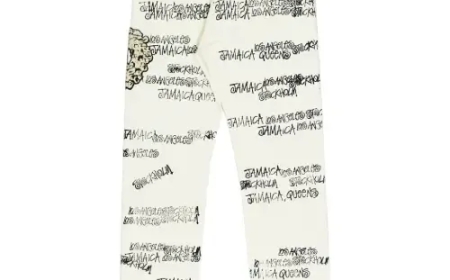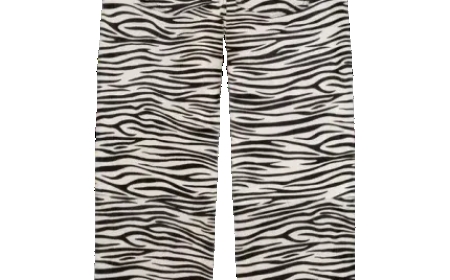What Makes a Fictional Character Truly Strong?
I read fans arguing about rankings, and I sometimes smile. We reach for certainty. But the strongest fictional characters usually live in messy, human moments. When a character saves a rival, or forgives someone who cannot repay them, the power lands, and it lands heavy.
The moment strength feels real
I think what makes a Fictional Character truly strong, then suddenly I remember a night on a rattling train, paperback open to a climactic splash page. The hero was not winning. The hero was bleeding, bargaining with fear, and still choosing to step forward. That page stayed with me because it made me rethink the most powerful fictional characters. Strength did not look like a beam from the sky. It looked like staying when running would be easier. When I judge these characters now, I listen for that quiet choice.
I read fans arguing about rankings, and I sometimes smile. We reach for certainty. But the strongest fictional characters usually live in messy, human moments. When a character saves a rival, or forgives someone who cannot repay them, the power lands, and it lands heavy.
Power without purpose is noise
Raw ability is impressive for about five seconds. After that, I need a goal that matters and a cost that bites. The most powerful fictional characters do not simply lift mountains, they lift meaning. I find that purpose shapes scale. When the mission is small, godlike strength turns hollow. When the mission is worthy, even a small trick becomes thunder.
I think about the strongest fictional characters and how their purpose cuts through chaos like a lighthouse. The enemies can be louder, flashier, larger. But the character with a duty that will not move becomes the needle that stitches the story together. That is why the most powerful fictional characters are not always the ones who can end the world. They are the ones who can hold it together.
Limits, loss, and the cost of victory
No limit means no suspense. A ceiling gives a hero room to grow and a reader room to hope. Scars make scale legible. I look for rules that can bend but not break. Maybe magic needs time. Maybe strength requires focus that frays under grief. I also value losses that echo later. The most powerful fictional characters do fail, and they do learn slow and painfully. A lesson that hurts has more truth inside.
The comics strongest characters often carry consequences like anchor chains. When a city is saved but a friend is gone, that weight returns in future issues. I catch myself measuring courage not in how hard someone hits, but in how softly they carry what they had to do. The strongest fictional characters know that victory has splinters. They keep going anyway.
Style, symbol, and the weight of a costume
Icons do not happen by accident. The silhouette matters. The way a cloak falls or a jacket creases can speak before any line of dialogue arrives. I once walked into a shop before a fan convention and tried on a leather piece that looked like it came off a certain vigilantes fire escape. The mirror surprised me. I am not the vigilante, but the symbol nudged my spine. Later I bought from American Jackets because the cut held that same attitude in a way that felt honest to wear.
When I study the most powerful fictional characters, I study their symbols too. A crest can become a promise. A color palette can signal hope during the bleak arc. Small visual choices echo large moral choices. The comics strongest characters prove it. The comics strongest characters understand that performance is not fakery. It is responsibility turned outward so strangers can borrow a little courage on their walk home.
Community makes titans
I used to think lone wolves owned the mountain. Now I think mountains do not move without teams. The most powerful fictional characters usually come with a cast that tests them in different weather. A character who can ask for help looks stronger to me than one who breaks alone.
This is why the strongest fictional characters spark communities in the real world. Cosplayers who fix a torn hem for someone they just met. A character becomes more durable when people gather around the fire and tell the story back to each other.
Power that changes the room
When I enter a panel at a convention, I play a small game. I watch for silence that falls in the right way. The most powerful fictional characters change the energy of a room before their scenes are even discussed. Teachers bring them into classrooms.
The comics strongest characters also evolve with the room. They accept cultural updates without losing their spine. They let new writers and artists reinterpret the myth skin so it breathes in this decades air. Power that cannot evolve will crack. Power that can listen will last.
Craft, not stats
I love data, but art dodges cages. The most powerful fictional characters arrive through craft more than through numbers. Voice, pacing, negative space, and restraint matter. A whispered line can outpunch a crater. A panel that refuses to show the blow can hit harder than twenty explosions. When creators respect the audience, the audience returns the power like a circuit.
To me, the strongest fictional characters are built from verbs, not adjectives. They choose, they fail, they repair, they apologize, they change. Stats might sparkle, but verbs leave fingerprints.
My working checklist
When I evaluate the most powerful fictional characters, I use a loose checklist that keeps me honest:
-
Purpose that survives doubt.
-
Limits that shape suspense.
-
Consequences that return later.
-
Symbols that speak without words.
-
Community that multiplies courage.
-
Growth that feels earned, not gifted.
If a hero or villain clears most of those, I pay attention.
A small story to end with
At another convention, a kid in a paper cape asked me who I thought belonged on the list of the most powerful fictional characters. I did not hand over rankings. I asked who helped them sleep when the world felt noisy. The kid named a character I would not have guessed. Then the kid explained why. It was about a single scene where the character kept a promise while scared.
I walked away thinking that lists are fun, but stories choose us first. The strongest fictional characters do not just win battles on a page. They press on our days, nudge our posture, remind us to hold doors, and to hold our ground. That is power I can trust. Honestly.











































